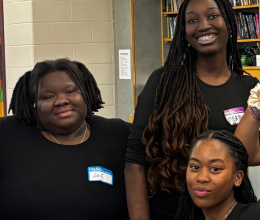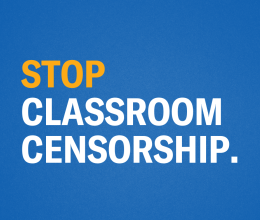By: Kim Whittle, Education Equity Ambassador Coordinator
As Delaware schools continue to shift toward prioritizing restorative practices in the classroom, it is crucial to build a strong framework for ensuring the sustainability of a restorative culture. A major component of this framework is identifying and fostering positive student leadership.
Encouraging students to embrace leadership roles within classroom walls fosters a sense of responsibility, boosts confidence, enhances communication skills, and prepares kids for future roles outside of their larger communities. When students are given opportunities for active participation and leadership, learning environments become collaborative spaces that in turn support the continued use of restorative practices.
The Circle Keepers, a youth-led organization dedicated to dismantling the school-to-prison pipeline, is proof of just how transformative and empowering student leadership can be for restorative movements. At the core of the organization is the strong belief that youth should be in positions of leadership to solve the issues that most affect them. The Circle Keepers coach and empower young people as restorative justice practitioners, artist-activists, and community organizers who work to build schools that are “safe, just and peaceful for all.”
Circle Keeper leaders have been trained extensively in the principles of restorative justice. Their training process includes comprehensive readings, multi-day training, interpersonal role-playing, mock circles, podcast discussions, and consistent coaching throughout their journey. Once they have completed training, student leaders are prepared to work with their local schools to implement restorative practices in the classrooms. The student leaders train other peers, teachers, and PTA members to enact restorative practices, lead community circles, and conduct peer juries to ensure accountability and transparency. When disciplinary issues occur, administrators and educators work collaboratively with Circle Keepers to explore restorative pathways that address the situation without relying on overly punitive actions.
Effectively implementing restorative principles only works if school administration, staff, and educators are committed to allowing students to take lead. The Circle Keepers are just one example of this. Student-led approaches to restorative practices not only enhance personal growth but also create a more cohesive and respectful school community that will inevitably translate to communities beyond. By placing trust in students' ability to manage and resolve conflicts that most directly impact them, schools can cultivate a culture of mutual respect and accountability that benefits everyone.









